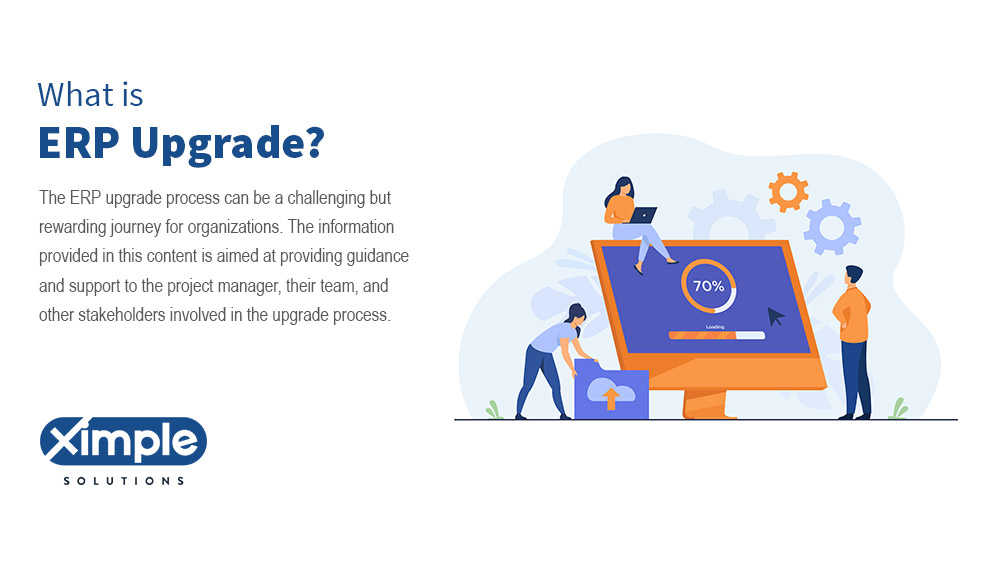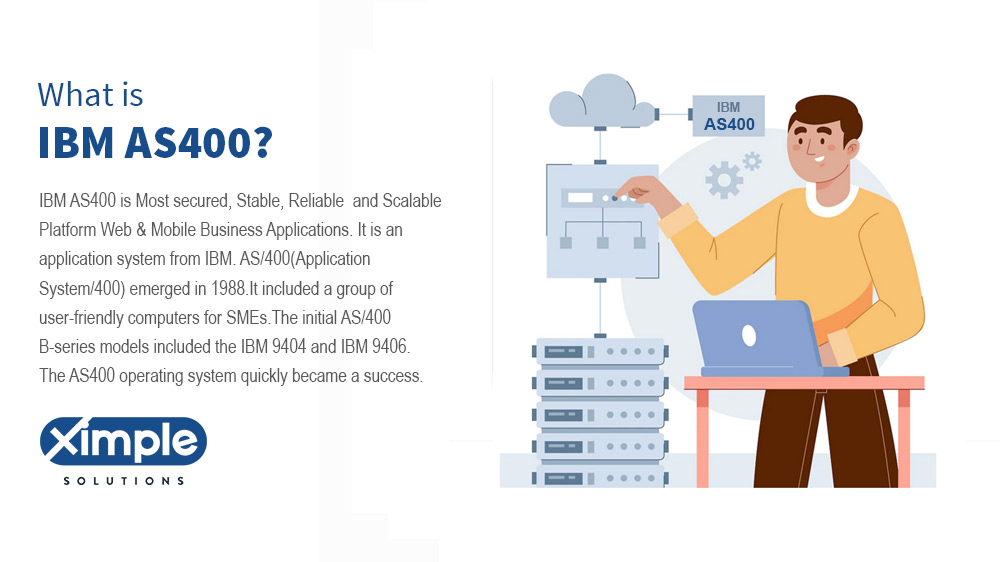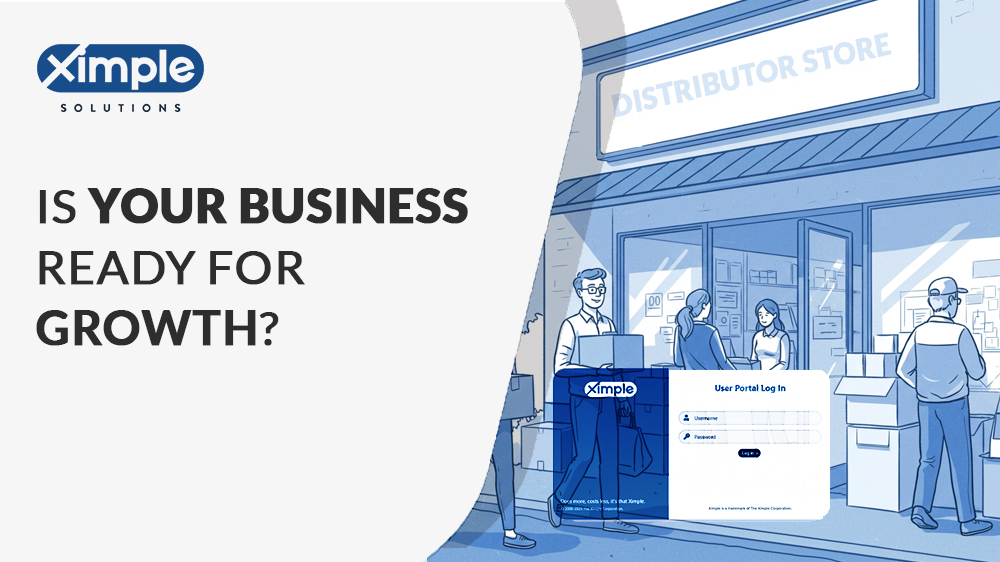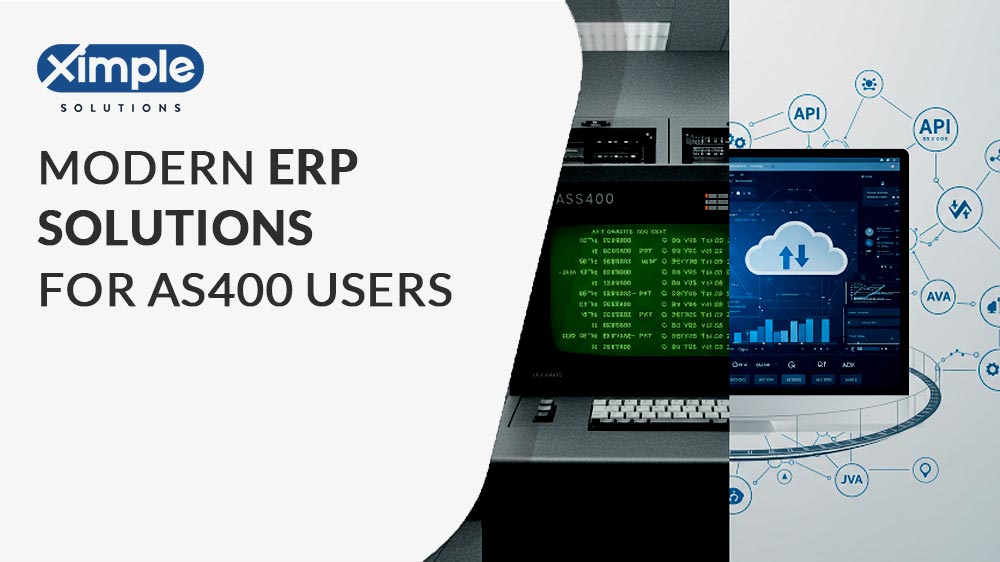ERP Upgrade: 10 Things to Consider For Its Success

The ERP upgrade process can be a challenging but rewarding journey for organizations. The information provided in this content is aimed at providing guidance and support to the project manager, their team, and other stakeholders involved in the upgrade process. The tips and considerations outlined in this content can help organizations to achieve a successful ERP upgrade, which can bring many benefits, including improved business functions, increased efficiency, and the ability to embrace new technologies. By taking a strategic and well-planned approach to the ERP upgrade process, organizations can reap the rewards of a modern, updated ERP system that helps to drive business success and growth.
An ERP upgrade process becomes vital when an organization wants to embrace new technologies and improve business functions. Although an ERP upgrade is less complex than the initial implementation process, it calls for the same strict measures.
ERP upgrades demand sufficient expertise and caution to end within the projected deadlines and costs. The project manager and their team should understand and follow our ten success tips below. Before we enumerate these tips, we will share the benefits of upgrading your ERP software.
Table of Contents
- Benefits of upgrading ERP
-
Ten tips for ERP upgrade success
- 1. Seek new ideas
- 2. Get support from senior managers
- 3. Identify the challenges and create benchmarks
- 4. Ensure change management
- 5. Choose a perfect project manager
- 6. Gathering project requirements
- 7. Defining the project scope
- 8. Managing the project scope
- 9. Analyzing resource requirements
- 10. Testing the system
- Conclusion

Benefits of upgrading ERP
ERP upgrades are a continuous activity you expect to occur throughout your company’s lifecycle. Learning to do an upgrade well each time can ensure the following benefits:
- Modernize your ERP system – Organizations that own legacy ERP systems should consider upgrading them to one of the best cloud ERP options. Instead of implementing a new ERP system again, they could update the old software. An upgraded system will prevent the organization from missing crucial data insights. Also, improved ERP software is easier to run and maintain.
- Continue to receive vendor support – All software vendors discontinue some older software tools. If you continue using obsolete software, the vendor will not provide support when a problem arises. Hence, seeking ERP upgrade help before your software expires is vital. It is one way of receiving instant and consistent vendor support.
- Improves efficiency – An organization that uses an obsolete ERP system has inefficient processes and workers. If you apply the best ERP upgrade strategy, you can increase efficiency without retraining workers. An upgrade is way cheaper than the initial ERP implementation project.
- Enhances customer experiences – If your customers have regular complaints, you should upgrade your ERP software. Perhaps it does not meet all their needs because of missing some latest updates. It might be too complex for users who have less technical knowledge. Upgrading your ERP could be all you need to boost customer satisfaction and retention.
Ten tips for ERP upgrade success
1. Seek new ideas.
The entire organization should benefit from an ERP upgrade project. Thus, allow all organization leaders and workers to share their thoughts. Arrange a meeting and invite these professionals to bring their tips and ideas. Involving them is the most basic way of managing change.
2. Get support from senior managers.
The inclusion of senior managers can ensure an ERP upgrade success. After all, they must accept the upgrade, facilitate it with funds, and offer dedicated support and supervision. The senior managers will also provide a steering committee to oversee the software upgrading.
3. Identify the challenges and create benchmarks.
One thing that can lead to a successful ERP upgrade is the early identification of challenges. Even if an ERP system upgrade is a small project, it has unique challenges that could fail. Challenges could be a lack of adequate financial resources, change resistance, poor integration of data, etc. Your team should spot all the pain points and establish vital data benchmarks.
4. Ensure change management
Did you know that lack of change management is the top cause of ERP system failures? Everyone using the current ERP solution should know about the upgrading plans. By informing all stakeholders about your ERP upgrade, you can avoid resistance to change. Workers should understand that the software upgrade procedure will not threaten their jobs. The shareholders should realize that the upgrade is a good use of their finances.
5. Choose a perfect project manager
The best way to overcome the challenges of an ERP upgrade is to hire the right project manager. Choose a professional who can visualize the beginning and the completion of an ERP upgrade plan. They must have the qualities of a good business manager, including planning, implementing, and finishing work within the budget and timeframe.
6. Gathering project requirements
The ERP upgrade team should have all the necessary facts before work. Hence, team members should gather requirements by interviewing different stakeholders. This research can boost project management and prevent failure. Managers can save time and energy and document the procedure by collecting requirements.
7. Defining the project scope
How big will your ERP upgrade project be? How much time will it take? Do you have specific project expectations? Can you estimate the ERP upgrade cost? Scope definition is a must in every software upgrade work. It helps the manager visualize all the project phases from the beginning to the end. Usually, the best scope has two stages, including the technical and the new functionality phases.
8. Managing the project scope
After defining your scope, the other thing is to manage it. Management of scope enables the project manager to execute items on the ERP upgrade checklist. Additionally, it allows managers to create a change management plan for altering the scope document. The approval of scope document changes is part of the management process.
9. Analyzing resource requirements
An ERP software upgrade can succeed if you have all the necessary resources. Thus, the team manager should identify all the activities, roles, and responsibilities that could ensure a successful upgrade. They must identify the most talented team members and gather adequate resources for the project lifecycle.
The project manager should find an ERP vendor that can supply resources as they become necessary to prevent delays. It might become essential to use a qualified ERP upgrade service partner. They will provide the services that your internal IT staff cannot. Opt only for competent and accomplished ERP upgrade providers as they have sufficient experience.
Their professionals understand how ERPs for different businesses and industries work. Besides, they have tackled many ERP implementation jobs before and can eliminate upgrade pitfalls to ensure success.
10. Testing the system
An upgraded system should go live only after thorough testing. With tools to automate the testing process, managers have no excuse for ignoring this step. Testing the updated system can prevent unnecessary repeat jobs and waste time and money.
Besides, software testing can prevent disruption of business operations when the upgraded system goes live. Above all, testing exposes errors that could trigger software failure and allows the team to correct them.
Conclusion
In conclusion, upgrading an ERP system is crucial for organizations that want to modernize their systems and embrace new technologies. With the right approach and proper planning, an ERP upgrade can bring many benefits, including improved business functions, increased efficiency, and better customer experiences. The ten tips for ERP upgrade success discussed in this content can help organizations to achieve a successful ERP upgrade. These tips include seeking new ideas, getting support from senior managers, identifying challenges and creating benchmarks, ensuring change management, choosing the right project manager, gathering project requirements, defining the project scope, managing the project scope, analyzing resource requirements, and finally, testing and training. By following these tips, organizations can reap the rewards of a modern and updated ERP system that will drive their business success and growth.
Related article
- What Is SaaS ERP? Best ERP SaaS in 2024
- Special Considerations before Switching ERP systems
- What is the Future of Cloud ERP?






